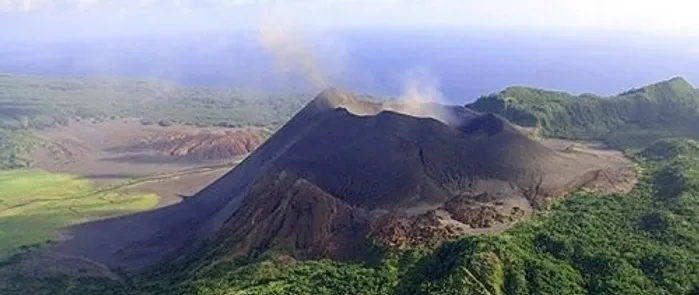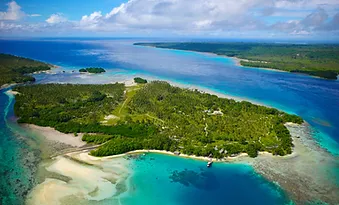
A COUNTRY IN THE HEART OF THE WESTERN PACIFIC
The Republic of Vanuatu, a State of Oceania situated in Melanesia, is in the southwest of the Pacific, offshore Ocean of Coral. The archipelago, called New Hebrides, consists of 83 islands for the most part of volcanic origin situated 1 750 kilometers east of Australia, northeast of New Caledonia, West of Fiji and South of the Salomon Islands.
Named « New Hebrides » after James Cook, the country knows a slow development and was disrupted by its exploration by the Europeans at the end of the XVIIIth century until the end of the XIXth century.
It is then the object of a conflict of interests between France and the United Kingdom who finally decide in 1904 to set up a joint administration, creating the Condominium of the New Hebrides
Status which will be maintained until 1980, making these oceanian islands the only colony managed collectively by two colonial powers.
In 1980, the New Hebrides become independent under the name of
« Vanuatu ».
Its population is about 266 000.
60 % of the population have less than 30 years.
65 % of the population of Vanuatu lives in rural zones of the archipelago.
The economy is mainly based on agriculture and fishing enough to sustain small villages.
The offshore financial services and the tourism with approximately 250 000 visitors in 2012, are the other important branches of industry.
The country has no known field for oil.
The industry is not very developed.
The economic development is bothered by the weakness of the exports, the vulnerability in natural disasters and by the big geographical disparity.
Vanuatu is ranked 126th on the human development index.
Vanuatu is a Republic with a symbolic President and active Prime Minister.
The climate is stable, which facilitates the implementation of projects.

